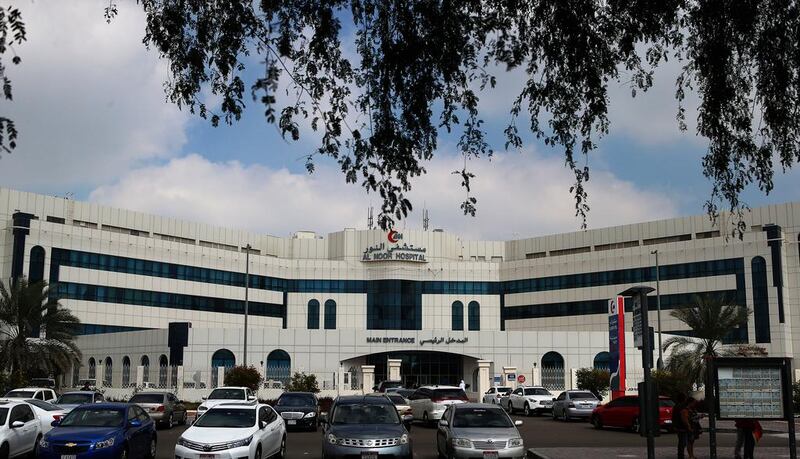The South African private healthcare provider Mediclinic said yesterday that its healthcare businesses in Abu Dhabi dragged down the profitability of its Middle Eastern operations because of regulatory changes that made it more expensive for Emiratis to get treatment.
But Switzerland, South Africa and Dubai performed in line with expectations during the 2017 financial year, which ended in March.
“We have been focused on resolving these issues and stabilising performance in the Middle East,” said Daniel Meintjes, the chief executive of Mediclinic, of the problems in Abu Dhabi.
“Our confidence in the long-term growth opportunities of the region remains strong and we currently expect performance in the Middle East to improve as we progress through the 2018 financial year.” In the financial year that ended March 31, for which full results will be published on May 24, the company said for the Middle East revenue was down 8 per cent compared with pro forma 2016 revenue at Dh3.1 billion versus Dh3.4bn.
Mediclinic said that for its Middle East operations it expects in the 2017 financial year depreciation and amortization of about Dh175 million and net finance costs of about Dh30m on account of the refinancing of a corporate bridge loan.
Shares of Mediclinic, which is listed in London and Johannesburg, rose as much as 4.8 per cent in London to 762 pence in afternoon trading.
Abu Dhabi last year issued new insurance rules, where Emiratis must pay for a greater proportion of their private-sector treatment. That’s eroded some earning potential of number of health care providers working in the Emirate.
The introduction of a 20 per cent co-pay requirement in Abu Dhabi for Emiratis seeking private health care began on July 1. A move to include long-term health care in the new system was eventually scrapped earlier this year after consumer complaints to the local health authority over the affordability of fees that can amount to Dh60,000 or more per month. Overall, however, the introduction of co-pay has dented the industry as many are put off seeking treatment in the private sector.
Mediclinic in February warned that patient volumes and operating performance at Abu Dhabi’s Al Noor Hospitals Group, which it owns, are below expectations as a result of doctors leaving and the new co-pay rules.
Mediclinic acquired in February last year Al Noor Hospitals Group to expand its footprint in the region, setting it up as the main competitor of Abu Dhabi-based NMC Healthcare. NMC said last month that it had a profitable year in 2016 despite the new co-pay regulations.
Despite regulatory challenges, the private healthcare sector remains poised for growth amid rising populations and strain on the government health care, according to analysts at Alpen Capital, a Dubai investment bank.
“Abu Dhabi and Dubai, the major healthcare hubs, have taken significant steps to develop the sector,” Alpen said in its latest report on health care.
“Abu Dhabi was the first emirate to introduce mandatory health insurance for expatriates by linking it to resident permits. The emirate has also announced the construction of several new hospitals to meet the growing demand for care.”
mkassem@thenational.ae
Follow The National's Business section on Twitter





